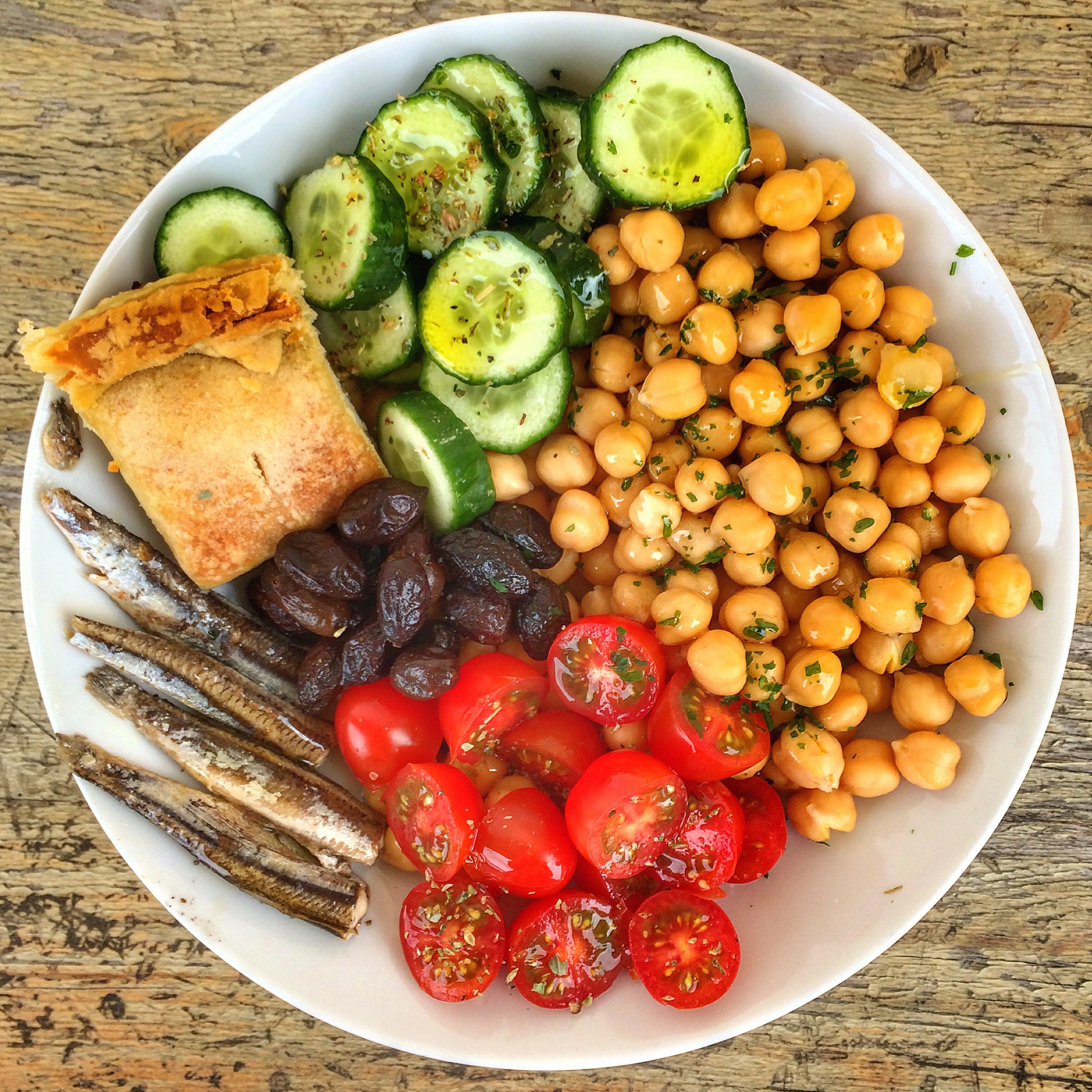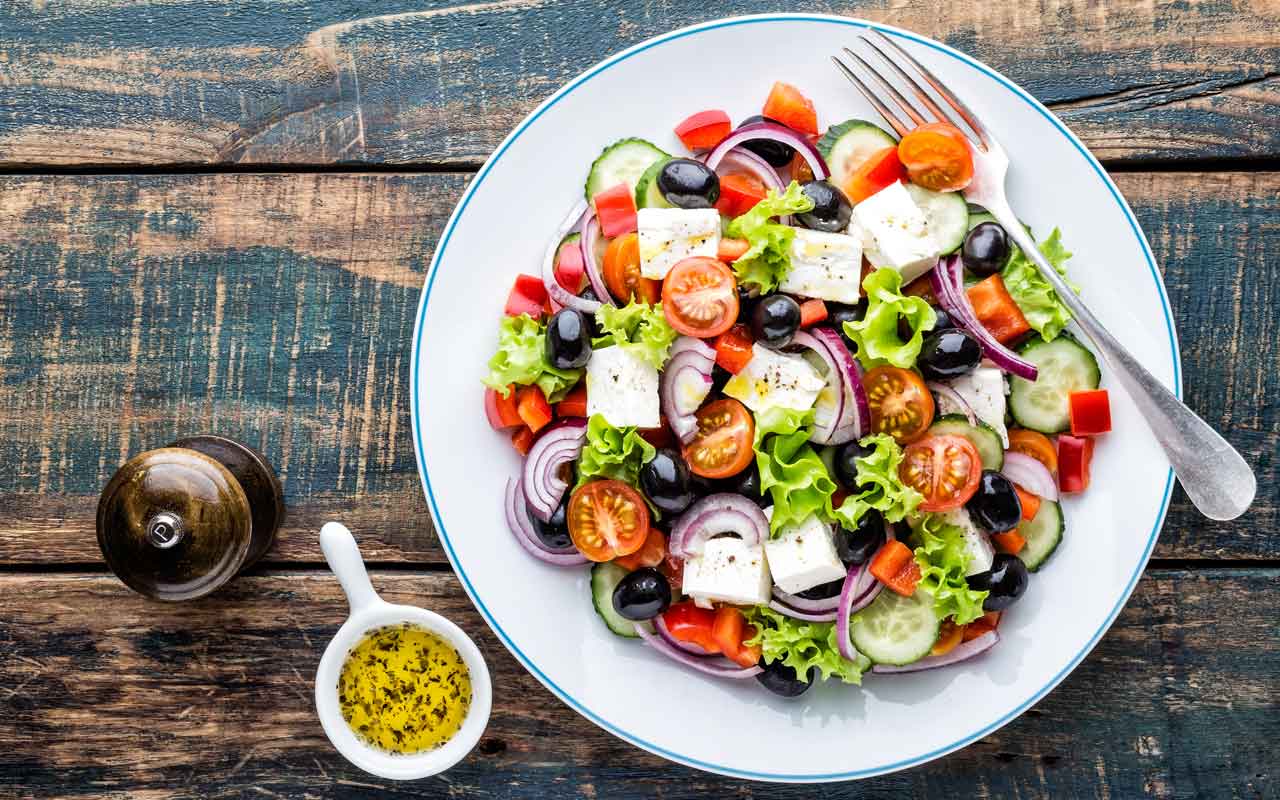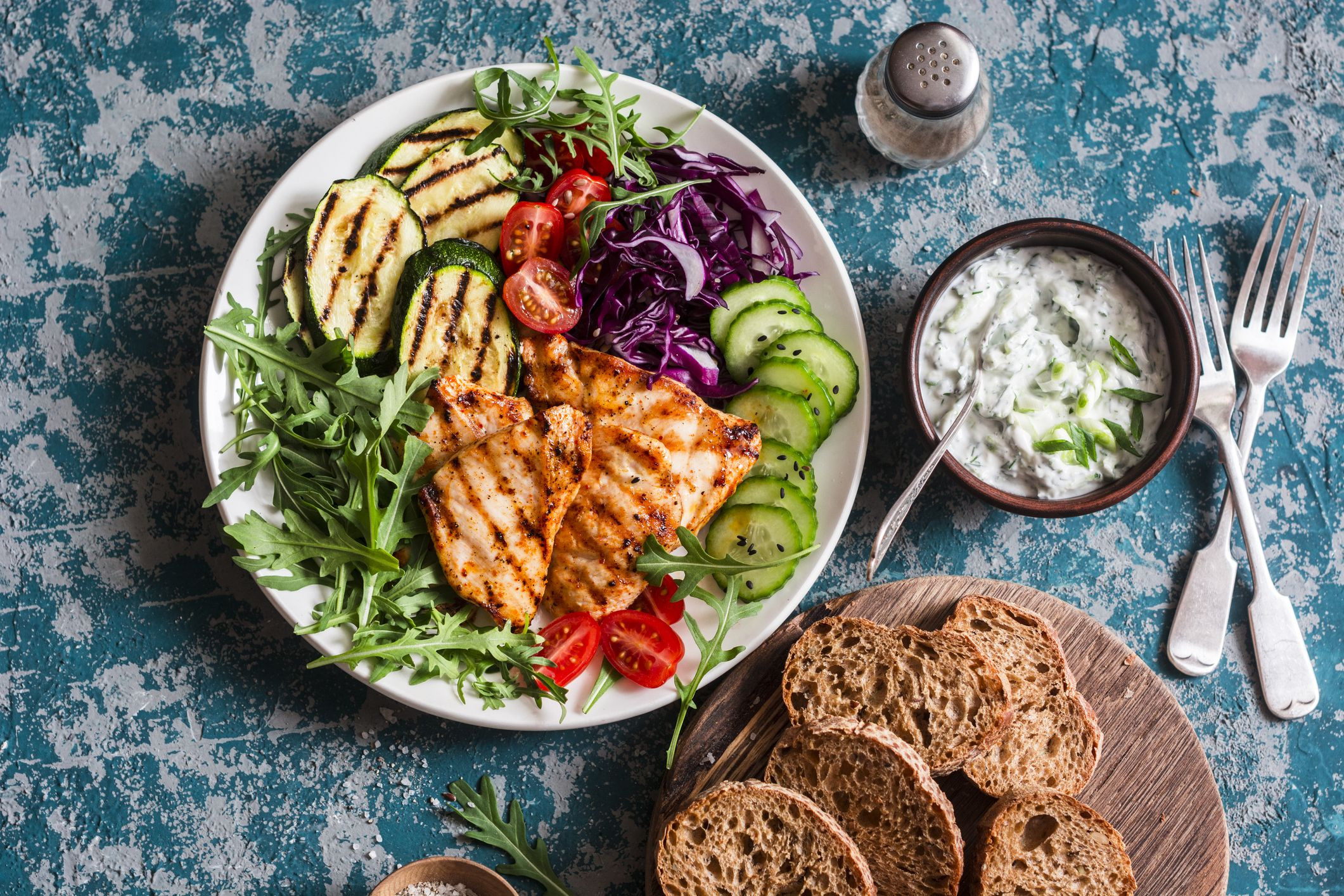Mediterranean Food - A Path To Better Living
It’s quite interesting, actually, how the things we choose to eat can have such a big impact on our health over time. We’re talking about conditions that stick around for a while, like those heart and blood vessel troubles often called cardiovascular concerns. There was, you know, a study back in the 1960s that seemed to show something rather important. It suggested that in some places, like Greece and Italy, where people typically ate a certain way, fewer individuals passed away because of heart and circulation problems. This was compared to other parts of the world at that time, and it really made people think about what was on their plates.
So, this particular way of eating, which many folks now call the Mediterranean approach to food, has gained quite a bit of attention for its potential good effects on our bodies. It's often talked about when discussing ways to keep our hearts working well and our blood flowing freely. The way people eat in that part of the world, with its emphasis on certain types of ingredients and preparation styles, has been looked at very closely by those who study well-being. It seems to offer a kind of support for the body’s most vital systems, which is, you know, pretty remarkable.
Beyond just the heart, there’s also some thought that this eating style might help our minds stay sharp. It has, apparently, been linked to a reduced likelihood of developing certain conditions that affect memory and thinking, like Alzheimer’s and other forms of memory loss. It also seems to have some connection to keeping our mental abilities strong as we get older. This suggests that the food choices typical of the Mediterranean region could offer wide-ranging support for different parts of our physical selves, not just the heart, but our brains too, which is just a little fascinating.
Table of Contents
- The Mediterranean Food Way of Eating
- How Does Mediterranean Food Support Heart Health?
- Can Mediterranean Food Help Your Brain?
- Are There Any Other Health Considerations for Mediterranean Food?
The Mediterranean Food Way of Eating
When people talk about the Mediterranean way of eating, they’re usually thinking about a healthy food plan that really puts plant-based items front and center. This approach, you know, brings together tastes and cooking methods that have been common in the Mediterranean area for a very long time. It’s not so much a strict diet with rigid rules, but more a pattern of eating that emphasizes certain groups of foods. You’ll find lots of fresh produce, like colorful fruits and a wide array of vegetables, making up a good part of the meals. Grains, especially those that haven't been overly processed, are also a regular feature, offering a steady source of energy. Legumes, which include things like beans and lentils, and various nuts and seeds, contribute important nutrients and satisfying textures. It’s a way of eating that feels, in a way, quite natural and rooted in tradition, focusing on simple, wholesome ingredients that have been enjoyed for generations in that part of the world.
What is the Mediterranean Food Approach?
So, what exactly does this Mediterranean food style look like on a daily basis? Well, it tends to be built around a few key ideas. For one, olive oil is pretty central; it’s used for cooking, dressing salads, and even as a dip for bread. It’s a primary source of fats in this way of eating, which is, you know, quite different from some other traditional diets. Fish and seafood are often eaten regularly, perhaps a few times a week, providing lean protein and other good things for the body. Poultry and eggs are included, but usually in smaller amounts than fish. Red meat, on the other hand, is enjoyed less often, perhaps only a few times a month, really making it a special occasion food rather than an everyday staple. Dairy products, like yogurt and cheese, are consumed in moderation. And, of course, water is the main drink, with wine sometimes enjoyed with meals, but usually in small quantities. The whole idea, you know, is to enjoy food that is fresh, seasonal, and prepared with care, using traditional methods that bring out the best in the ingredients. It’s a very balanced and, in some respects, quite simple way to approach meals, focusing on real, whole foods that are naturally flavorful.
How Does Mediterranean Food Support Heart Health?
It’s a fair question to ask how this particular Mediterranean food pattern actually helps our hearts stay strong and healthy. As we mentioned, the 1960s study hinted at something important, showing fewer heart-related problems in certain Mediterranean areas. One big reason for this, many people believe, comes from the types of fats that are commonly used. Instead of relying heavily on fats that can, over time, build up in our arteries, this way of eating leans on fats that are thought to be more beneficial for our blood vessels. Think about all those plant-based foods – the nuts, the seeds, the olive oil – they all contribute to a different kind of fat intake. This shift in fat types, you know, seems to play a big part in keeping the cardiovascular system running smoothly. It’s almost like giving your heart and blood vessels the right kind of fuel to keep going strong, rather than something that might clog things up over time. The overall balance of nutrients, from the fiber in whole grains to the antioxidants in fruits and vegetables, also likely contributes to this protective effect, helping to keep everything in good working order.
A Look at Fats in Mediterranean Food
Let's talk a little more about fats, because they are, you know, a really important part of the Mediterranean food story. When it comes to heart well-being, margarine often gets a bit of a higher rating than butter. Margarine, you see, is typically a mix of different oils, and these oils are mostly what we call unsaturated fats. These kinds of fats are generally thought to be better for your heart than saturated fats, which are more common in animal products. Butter, on the other hand, is made from cream or milk, and it contains a good amount of saturated fat. The type of fat found in butter, while natural, is different from the kind that makes up most margarine. In the Mediterranean way of eating, the focus is often on sources of unsaturated fats, like that good olive oil we talked about, and the fats found in nuts and seeds. This preference for unsaturated fats, rather than those that are solid at room temperature, is one of the key differences and, arguably, a big reason why this eating style is considered so supportive of a healthy heart. It’s about choosing the right kind of building blocks for your body, which is pretty important, actually.
Can Mediterranean Food Help Your Brain?
It’s a truly fascinating thought, isn’t it, that the food we eat might also influence how well our brains work as we get older? There’s been some really interesting discussion about whether the Mediterranean food approach could help keep our minds sharp. In particular, this way of eating has been connected with a reduced likelihood of developing certain conditions that affect memory and thinking, such as Alzheimer’s and other forms of dementia. It’s not a guarantee, of course, but the connections being explored are pretty compelling. The idea is that the same good things that help the heart – like those beneficial fats, the abundance of plant foods, and a good mix of nutrients – might also support the health of our brain cells and the way they communicate. A healthy blood flow, which this eating style seems to promote, is, you know, absolutely vital for brain function. So, if your heart is happy, your brain might be happier too, which is a very appealing thought indeed.
Mediterranean Food and Thinking Skills
Beyond specific conditions, the Mediterranean food style is also linked to improved cognition in people, even those who might be at a higher risk for memory problems. Cognition, basically, refers to our mental abilities – things like remembering information, solving problems, focusing attention, and using language. When we talk about improved cognition, we mean that these skills might stay sharper or even get a little better for individuals who follow this way of eating. It’s almost like giving your brain the right kind of fuel and protection to perform its best. The various components of this diet, from the antioxidants in colorful fruits and vegetables that protect cells, to the healthy fats that build brain cell membranes, seem to work together in a way that supports overall mental clarity. So, it’s not just about avoiding problems, but also about potentially boosting how well our brains can function on a daily basis, which is, you know, a pretty powerful benefit for anyone.
Are There Any Other Health Considerations for Mediterranean Food?
While we’ve been focusing on the positive aspects of the Mediterranean food pattern, it’s also good to touch on some other related health topics that sometimes come up in discussions about diet. It’s important to remember that the term "Mediterranean" can also refer to certain medical conditions, not just a way of eating. For instance, there’s a genetic disorder called Familial Mediterranean Fever, or FMF. This is a type of autoinflammatory disorder, meaning it causes the body’s own immune system to mistakenly attack healthy tissues, leading to recurring fevers and painful inflammation. This inflammation can show up in places like your abdomen, chest, and joints. It’s a distinct medical condition, you know, and not something directly related to the benefits of eating Mediterranean food. It’s just that the name shares a geographical reference, which can sometimes lead to a bit of confusion. So, it’s worth noting that while the diet is generally very good, this specific condition is a separate medical matter entirely.
Familial Mediterranean Fever and the Mediterranean Food Connection
To clarify a little more about Familial Mediterranean Fever, it’s a genetic condition, which means it’s passed down through families. People who have FMF experience episodes where they get fevers and their bodies become inflamed, causing pain. These episodes can happen in different parts of the body, like the lining of the belly, the chest, or the joints, making them feel quite uncomfortable. This condition is, you know, a medical diagnosis that requires specific treatment, and it’s not something that can be prevented or treated by simply following the Mediterranean food plan. While a healthy diet is good for everyone, the FMF condition is a separate, inherited issue. It’s important to keep these two distinct meanings of "Mediterranean" in mind to avoid any misunderstandings about health and food choices. The diet is about a healthy lifestyle, while FMF is a specific, inherited health challenge.
Other Dietary Approaches - DASH and Paleo Food
Sometimes, when people talk about healthy eating, other dietary approaches come into the conversation alongside the Mediterranean food style. For example, there’s something called DASH, which stands for Dietary Approaches to Stop Hypertension. This particular eating plan is designed to help people manage high blood pressure, and it has its own set of guidelines for food choices. The DASH diet, you know, focuses on reducing sodium intake and increasing foods rich in potassium, calcium, and magnesium, which are minerals that can help lower blood pressure. Then there’s also the Paleo diet, which tries to mimic the eating patterns of our very early human ancestors. This usually means focusing on lean meats, fish, fruits, vegetables, nuts, and seeds, while avoiding grains, legumes, and dairy. However, it’s been suggested that the potential benefits of a Paleo diet may not always outweigh other considerations, which is, you know, something to think about. Each eating plan has its own unique focus and, in some respects, its own set of pros and cons, and what works for one person might not be the right fit for another.

Mediterranean Diet Food List Mediterranean Diet Food - vrogue.co

20 Best Mediterranean Foods You Need in Your Life - Nomad Paradise

Top 15 Most Shared Mediterranean Food Diet – Easy Recipes To Make at Home